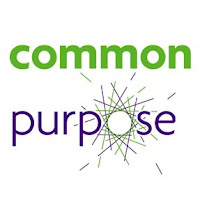Its that most magical time of the year again when everyone who’s fortunate enough to be in employment gets invited to ‘the works do’ - a chance to relax with colleagues and friends, reflect on the highs and lows of the year just passed, and generally make merry. A time to be encouraged and re-invigorated.
But not for me. Not because I’ve not been invited to others’ works do’s (‘cos I have, but have had to turn them all down owing to other clients needing me to support them fix problems when those parties are taking place - I’m afraid that for the time of life at the moment, the choice of earning money to pay bills always has to come first), but because as a sole trader, the tax office discriminates against me being able to have my own celebrations in the way that my employed counterparts can:
 You see, the tax office allows for a spend of up to £150 per employee in respect of Christmas parties (so if your boss is saying they can’t afford anything more than limp sandwiches and 1 bottle of cheap plonk between 15 people, you can set them straight!). But this only applies to people who are in the employ of others - not those who are self-employed. Any celebratory costs I incur on behalf of myself and others I‘m fortunate enough to work with and might choose to partake of a mice pie and sherry with, I have to bear the full costs of at my personal expense after tax…
You see, the tax office allows for a spend of up to £150 per employee in respect of Christmas parties (so if your boss is saying they can’t afford anything more than limp sandwiches and 1 bottle of cheap plonk between 15 people, you can set them straight!). But this only applies to people who are in the employ of others - not those who are self-employed. Any celebratory costs I incur on behalf of myself and others I‘m fortunate enough to work with and might choose to partake of a mice pie and sherry with, I have to bear the full costs of at my personal expense after tax…
Given that the growth of the business population seems to be increasingly rooted in people like me: the self-employed, surely its time for HMRC to review these rules so we don’t have to miss out on the festivities that others are enjoying…?
But this is Christmas time - not a time to be melancholic and upset, but a time to try and spread goodwill: so to all my fellow sole traders, you can hopefully draw some moral comfort from this in that you’re not the only one to feel you’re missing out on the egg nog and turn under the mistletoe;
to everyone else- warmest wishes of the season to you and your loved ones;
as for me - I’m off to seek what’s on special offer at my local off-license, find a limp sandwich and pull my cracker by myself…

